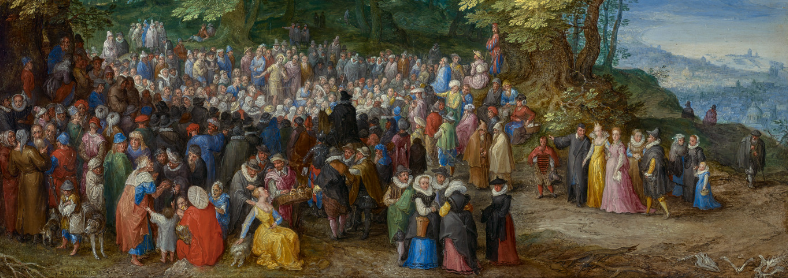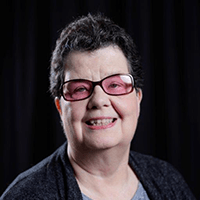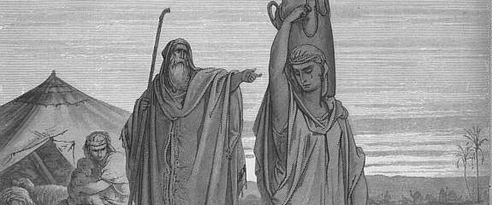Dr. Margaret Dunn is an ordained minister in the Church of God. She is serving at Mid America Christian University as an adjunct instructor and at Parkgate Community Church as a learning hour teacher for 3rd-5th grade students, a prayer partner, and a member of the missions team. She has been a member of leadership teams for the Church of God on the state and national level and was a member of the planning team for the 3rd, 4th, and 5th WHWC conferences. She lives in Pasadena , Texas.
Waiting: Women in Scripture Series
Rev. Dr. Margaret Dunn • September 8, 2021 | WHWC
What can we learn about waiting from women in Scripture?

Every year we celebrate National Infertility Week, which caused me to think about some of the mothers in the Bible who struggled with this problem. As I studied this, I found five women in the Old Testament who struggled with and confronted this issue. I will look at how each of them and their husbands approached their struggle and what we can learn from their struggles to help ourselves or the couples we minister to as they deal with this very real struggle.
Sarah’s Story
First, we meet Sarah (Sarai) in Genesis 11:29. We learn she is Abram’s wife and Genesis 11:30 tells us Sarah is barren; she had no child. In the following chapters, we read of God’s promise of a son to Abraham and of the advancing age of both Abram and Sarah. In Genesis 16, Sarai takes matters into her own hands and involves her maid Hagar:
“Now Sarai, Abram’s wife, had borne him no children. But she had an Egyptian slave named Hagar; so she said to Abram, ‘The Lord has kept me from having children. Go, sleep with my slave; perhaps I can build a family through her.’ Abram agreed to what Sarai said,” (NASB Genesis 16:1-2).
Note that Abram agreed with Sarai rather than trust God at the moment. How different the outcome would have been had he heard Sarai’s heart but trusted God during the waiting period.
How hard it was for them to wait since they were already in their 80’s and 90’s when God’s promise came to them.
We know the story of Hagar and Esau and the estrangement between Sarai and Hagar. We also know the rest of the story and that in Genesis 17 God repeats his promise to Abram and changes his name to Abraham and Sarai’s name to Sarah. God then tells Abraham that he and Sarah will have a child and his name will be Isaac. In Genesis 21, this comes to pass when Isaac is born: the time of waiting was over, Sarah and Abraham had a son.
Rebekah’s Story
We next meet Isaac and his wife Rebekah in Genesis 25:21. The author writes “Isaac prayed to the Lord on behalf of his wife, because she was unable to have children; and the Lord answered him, and his wife Rebekah conceived.” Isaac’s response in this journey was to pray to the Lord on behalf of his wife.
These prayers were answered and the twins: Jacob and Esau were born.
Rachel’s Story
The third woman in our study is Rachel. This is the third generation of infertility in Abraham’s family. Rachel was loved by Jacob, her husband, but was barren. (Genesis 30:1). Leah was not loved by Jacob but bore him six sons (Genesis 30:19-20). This story is one with a very difficult family dynamic which merits discussion but not here.
Genesis 29:31, says that the Lord blessed Leah with children because she was unloved but Rachel was barren. Each woman had deep needs that only God could fill and their story is full of bargaining, jealousy, and bitterness. In her distress, Rachel does not cry out to God for children but blames Jacob.
This leads to a conflict with Jacob and more bargaining. In the end Rachel does have two children and dies when the second one is born. In this story, there are three people who did not have God at the first place in their hearts. Their struggle with infertility led to anger, jealousy, bitterness, and emptiness in a spot that only God can fill.
Hannah’s Story
In contrast to these first three women we find Hannah (I Samuel 1:1 – 2:2) and Samson’s mother (Judges 13:1-7). Hannah was married to Elkanah. As was common in the Old Testament times, Elkanah has another wife Peninnah. Peninnah had children, but Hannah did not.
Scripture records that when the day of sacrifice came, Elkanah would give one portion to Peninnah and each of her children and to Hannah he gave a double portion because he loved her (I Samuel 1:4-5). Peninnah provoked Hannah and Hannah was sad.
In her sadness, Hannah does not blame her husband or retaliate against Peninnah, but she goes off and prays. She prays so hard that the priest thinks she might be drunk. She is not and continues to pour her heart out to God. God grants her request for a child and Hannah keeps her promise to give the child to God.
As she gave Samuel to God, God blessed her with more children. What is Hannah’s response? She sings a song of praise to God that is recorded in I Samuel 2:1-10. As she honors God, she is blessed with five more children (I Samuel 2:20-21).
Samson’s Mother’s Story
Samson’s mother is only known as Manoah’s wife. She is barren (Judges 13:2) but an angel of the Lord appears to her and promises her a son who is to be consecrated to Him and raised as a Nazirite. Her husband asks for confirmation of what she had heard about how they were to raise the son.
They then have a time of worship. Manoah’s wife later gave birth to Samson and they raised him according to the angel’s directions. The Bible does not record the birth of any brothers for Samson but records in Judges 16:31, “But his brothers and all his father’s household came down, took him, brought him up, and buried him between Zorah and Eshtaol in the tomb of Manoah.”
Life Lessons From These Women
For all these women, barrenness was an issue. Each of these women made choices on how to deal with the hard circumstances in her life. What are the ways we can apply these stories to our lives and to those we serve?
Lesson One:
From Sarah’s story we can see that it can be hard to wait on God and to trust in His provision. When we are weak and want to make a way ourselves, we need others to hold us accountable and to bolster our faith.
While we need the support of others, we also need the space to grow as we wait for God’s provision
(be it waiting for a child or waiting for something else). What we do not want to do is to take the matter into our own hands as Sarah and Abraham did. We can help those with whom we are sharing this journey with by listening to God’s voice and following His directions.
Lesson Two:
From Rebekah’s story, we learn that we can pray hard as a couple, and for the couple.
Isaac’s prayers for Rebekah lasted 20 years: He was 40 in Genesis 25:21 when he began to pray and 60 years old when the twins were born (Genesis 25:26). The journey may take time (just like any faith journey may take time) but we can trust God will answer as we listen and as we wait.
Lesson Three:
From Rachel’s story, we can learn to pray and ask God to fill the God spot.
The answer may not be a child, but God will heal brokenness and give the assurance that you or the person you are praying for is a loved child of God.
Lesson Four:
God hears the inmost cries of our heart and He wants to hear them. Hannah prayed with great honesty and great emotion and God heard and answered her prayer. In the middle of it all, Hannah hoped that God would provide. As we pray, we can be honest with God, share our deepest emotions with Him, and have the hope that He will answer.
(He does, we just have to listen for the answer).
Lesson Five:
When God surprises us, we can listen to Him and follow His directions.
Samson’s mother and father did this and were blessed with Samson and other children.
These lessons do not just apply to the journey of infertility, but to the journey of any time of waiting.
Lincoln Brewster wrote these lyrics in the song “While I Wait”. You can listen here https://youtu.be/NswPPVgMaPE
“I live by faith, and not by sight
Sometimes miracles take time
While I wait, I will worship
Lord, I'll worship Your name
While I wait, I will trust You
Lord, I'll trust You all the same
When I fall apart, You are my strength
Help me not forget
Seeing every scar, You make me whole
You're my healer”
“Though I don't understand it
I will worship with my pain
You are God, You are worthy
You are with me all the way
So while I wait, I will worship
Lord, I'll worship Your name
Though I don't have all the answers
Still I trust You all the same”
Enjoyed this article? Connect with us on one of our social media platforms. Share it and forward it to a friend:

Wesleyan Holiness has a rich and diverse history of women empowered by the Holy Spirit following God in obedience to Him, blocking out the voices of those who didn't embrace or encourage women preachers. Each one of them are the women whose shoulders we stand upon, making way for the next generation of women pastors coming up behind us.

The wonderfully freeing truth we have in the Beatitudes is that they are not a checklist of to-dos and rules to hem us in, keep us in line, or that we must check off. The Beatitudes are words given to us as grace, dripping like honey from a honeycomb with blessing and hope in a desperate and broken world.




